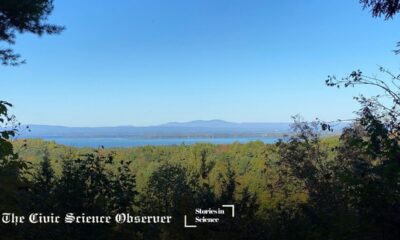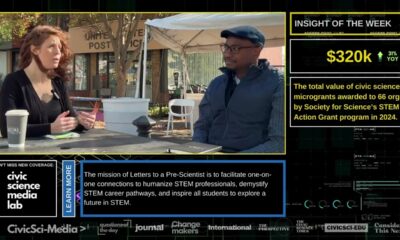Stories in Science Special Series
My Journey Coming Out of the Deep Dark Ditch of “publish or perish”
This is my story – the story of going through a tremulous phase of my life during which I lost faith in science and myself, but eventually regained it.

– Sandhya Sriram, PhD –
[dropcap]E[/dropcap]ver since I decided to pursue research, I was told one thing – You have to have good publications to succeed as a scientist. This was embedded in my mind, body and soul since every successful scientist I knew had a good or great track record of publications.
But boy oh boy, later did I know that this statement is not true. What matters most is good and meaningful science and that will eventually lead to good publications.
This is my story – the story of going through a tremulous phase of my life during which I lost faith in science and myself, but eventually regained it. As it is said, time heals all.
I enjoyed my PhD – for the most part. The usual issues with the supervisor, waiting for results, problems with collaborators, tiffs with colleagues and unexpected expectations from everyone around you were part of my PhD too. But I loved working in the lab surrounded by my Western blots, pipettes, cell culture media, the constant humming of various equipment and the loud music trying to beat that humming. I loved the part of waiting for results – to see the magic of the protein bands on an X-ray film or the cells grow and beat/twitch under the microscope.

Dr. Sandhya Sriram
I first published in a good journal in the second year of my PhD – that was quite an achievement. It was a breeze I should say, as it got accepted in the first journal we submitted to with very few edits to do after the positive review. I was elated and so was the team barring a few jealous members in the lab….
Anyway, moving on, I graduated with a PhD in 4 years with three first author papers and a couple of papers that I co-authored. I continued with the traditional path in academia and went on to do a couple of postdoctoral fellowships. Life was good.
I like juggling and multi-tasking; I do not think I will ever leave the field of science whatever happens. I believe in living life to the fullest.
Then, one fine early morning, when I was vacationing in Malaysia, I got a call from my PhD supervisor. I felt the floor beneath me crumbling down, my face getting really hot, tears flowing down from my eyes, my blood pressure rising, my head throbbing and my head feeling dizzy. He gave me news that an anonymous whistleblower has alleged that I had manipulated the results in my thesis, published papers and that I was involved in research misconduct. At this point, I was told that this letter was sent to the university and the journals only pointing fingers at me and no one else in the lab. But later, I came to know that this was not true.
To cut the long story short, I came out ok with a few bruises in terms of having to withdraw one publication – but completely stabbed in the soul, the soul of science.
Through the grueling investigation and numerous interviews the university conducted, I questioned my own experiments, my faith in myself and in science. Basically, I was questioning everything I had done my whole life! I felt I was being put into a very dark ditch and that I could never get out of it. I was disturbed, could not sleep very well and had nightmares of floating Western blot films!
What got me through all of that pain was a very supportive husband and my closest colleagues, who believed in me every single step of the way. My husband only said one thing – “If you have manipulated results, accept it truthfully. If you haven’t, then do not worry – tell the truth, be firm and everything will be fine.” Of course, I did not manipulate any results or have even thought of doing it. So, all I had to do was show my results, the excel sheets, numerous Western blot films, microscopic images and so on at the investigations. It meant going through all my results of the last 6+ years one by one!
Eventually, after a miserable 18 months, I did get out of it with valuable lessons and restored faith in science, research and most of all, in myself. But that period of my life is etched in my memory and has made me look at life and career in a very different way. Now, I cherish science, but I am on the other side of it.
The most valuable lessons I learned was:
[su_note note_color=”#f9d4dc”](1) be strong, make sure you have a strong support system as well
(2) be confident if you have not made an error
(3) make sure all your results are well documented and you have multiple copies of your results.[/su_note]
I quit fulltime research last year and took up business development and program management in a research institute instead. I love being able to support and help scientists pursue research effectively. At the same time, I turned into an entrepreneur – my recent startup being SciGlo (www.sciglo.com). The unique selling proposition (aka USP) of this web platform is the Lab Ratings solution – which is a completely anonymous platform to enlist and rate labs… well why not, you look for movie and restaurant ratings – why not look at ratings of labs by your peers, when you end up spending 1-5 years of your life in a lab.
I like juggling and multi-tasking; I do not think I will ever leave the field of science whatever happens. I believe in living life to the fullest. The bitter experience left a bad taste in my mouth but taught me so much and I think it was for the best. Every experience makes us a better person.
Science is in the air I breathe.
| Tip Box |
|
Try everything at least once. Go for it. If you do not try, you will never know what works for you. |
|
Ask questions – without questions and clarifications, you can never move forward. However trivial, ask them. |
|
Entrepreneurship is addictive – once you enter it, it is very hard to get out. Entrepreneurs make the best and the worst human beings; so decide who you want to be. |
[su_boxbox title=”About Dr. Sandhya Sriram: Scientist-entrepreneur-blogger” box_color=”#741B1B”]About Dr. Sandhya Sriram: Scientist-entrepreneur-blogger Sandhya is an entrepreneurial scientist and blogger, currently working as a Programme Manager at Singapore Bioimaging Consortium (SBIC), A*STAR. She recently transitioned into a management role from research – prior to this, she was a Research Fellow working on adipose and dental stem cells, pluripotency, oxidative stress and obesity.
Sandhya is also the founder and CEO of her latest venture, SciGlo, which caters to helping people in STEM. It is a web resource hub and solution platform to build a community of students, researchers and scientists from various science sectors. She has been featured in Forbes – Women@Forbes for her entrepreneurial work. She strongly believes that innovation and entrepreneurship in the health sciences, biotech and healthcare sectors is the way to go and the only way mankind can exist in the future. Her passion has always been to do meaningful science and not fall into the trap of “publish or perish”!
Starting up her own company/website(s) SciGlo and Biotechin.Asia, has been an eye-opening experience, through which she further discovered her passion for the “right” science. Sandhya holds a PhD in Biological Sciences and lives in Singapore. She gives back to the student population by conducting/speaking at various workshops for careers in biotech and biomedical sciences, science communication and women in science. She is also a startup mentor at Vertical VC, Finland. She is a strong supporter of women in science and is passionate about this topic. She is also a mother of a very inquisitive 5-year old; fond of good vegetarian food and loves to travel in comfort and style.[/su_boxbox]
Cover image is from Pixabay | CC0 Creative Commons
Liked the story? We’re a non-profit. Make a small donation and help us keep this database alive for both current and future generations.
The CS Media Lab is a Boston-anchored civic science news collective with local, national and global coverage on TV, digital print, and radio through CivicSciTV, CivicSciTimes, and CivicSciRadio. Programs include Questions of the Day, Changemakers, QuickTake, Consider This Next, Stories in Science, Sai Resident Collective and more.

-
 Audio Studio1 month ago
Audio Studio1 month ago“Reading it opened up a whole new world.” Kim Steele on building her company ‘Documentaries Don’t Work’
-
Civic Science Observer1 week ago
‘Science policy’ Google searches spiked in 2025. What does that mean?
-
Civic Science Observer1 month ago
Our developing civic science photojournalism experiment: Photos from 2025
-
Civic Science Observer1 month ago
Together again: Day 1 of the 2025 ASTC conference in black and white
Contact
Menu
Designed with WordPress
























